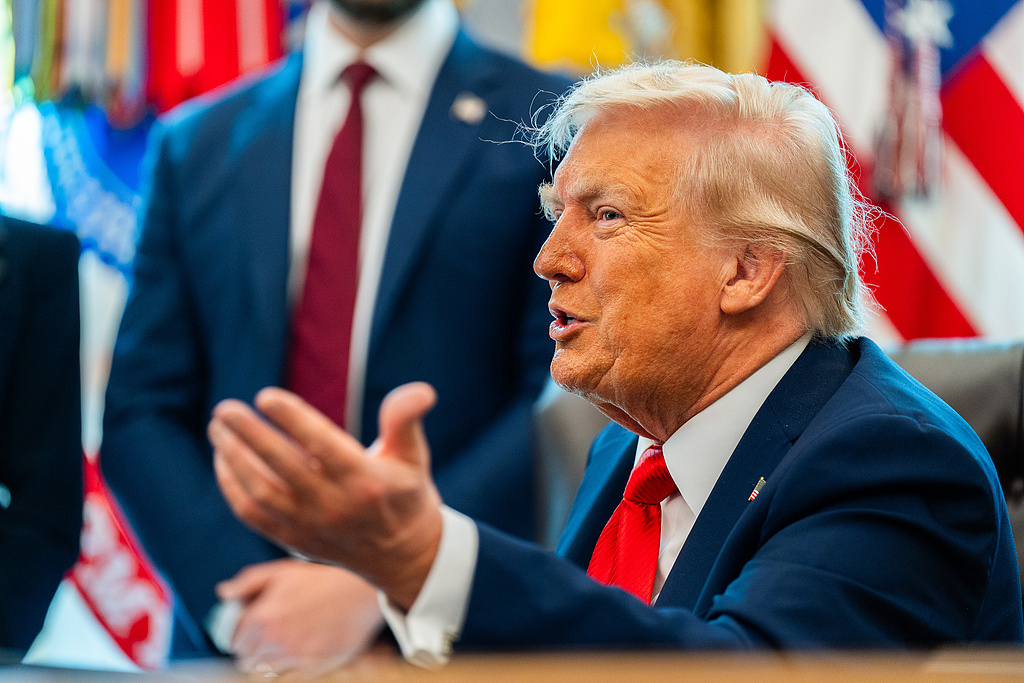The U. S. government used the“International Emergency Economic Powers Act” to impose tariffs were found illegal again. US media said the ruling was a serious blow to the Donald Trump administration’s aggressive trade policy and that legal disputes and disagreements over tariff policy in the US would still create great uncertainty for international trade. After the ruling was announced, President Donald Trump denied it and announced he would appeal to the Supreme Court. The BBC said the ruling raised the inevitable question of whether previous trade deals with the US were still valid?

The United States Court of Appeals upheld the decision
According to public reports, the Donald Trump administration introduced a series of tariff increases after taking office in January by invoking the International Emergency Economic Powers Act in a direct executive order without congressional approval. The United States Court of International Trade ruled in May that the move was illegal. The Donald Trump administration then appealed to the Federal Circuit Court of Appeals. On August 29th the Court of Appeals for the Federal Circuit upheld the International Trade Court’s ruling by a 7-4 vote, finds that the IEA does not give Donald Trump the power to impose the fentanyl tariffs and equivalent tariffs.
The court’s ruling shows that tariffs are a core power of Congress. The International Emergency Economic Powers Act authorizes the President to enact certain economic measures in emergency situations to address“Exceptional and exceptional threats,” and it gives the president the authority to regulate imports, but that does not mean authorizing the President to impose tariffs by executive order. For the past 50 years, U.S. presidents have often invoked the 1977 law to impose economic sanctions on other countries, Politico said, but no president has used the law to impose tariffs.
The ruling will not take effect until October 14, allowing the Donald Trump administration to appeal to the Supreme Court. After the ruling, Donald Trump criticised the court for being “Highly partisan”, declaring it a “Disaster” for the US and “A decision that, if left to its own devices, will destroy it completely”.
Ministers warned of“Devastating” consequences
According to US media reports, the Donald Trump administration’s steel and aluminium tariffs and auto tariffs under section 232 of the 1962 Trade Expansion Act were not affected by the ruling. The Donald Trump administration imposed tariffs of about $107bn from February to July, according to Treasury data, much of it under the International Emergency Economic Powers Act, removing those tariffs could mean“Fiscal collapse”.
In a statement to the court on Aug. 29, Donald Trump’s cabinet ministers asked the court to immediately suspend any ruling against the government until the Supreme Court makes a final ruling, Bloomberg reported, otherwise there would be“Devastating and terrible consequences”. The United States Secretary of the Treasury and Secretary of State Rubio warned that ruling the president’s tariff policy was illegal would “Create a serious diplomatic embarrassment”, it has scuppered months of negotiations with the EU, Japan, South Korea and others and could prompt retaliation from other countries. Lutnik, the United States Department of Commerce, said the negative ruling would “Send a signal to the world that the US lacks the resolve to defend its own economy and national security”.
The federal appeals court ruling is not only a significant setback to the Donald Trump administration’s core agenda, it could have a direct impact on the US economy and have a knock-on effect on global markets, according to analysis by the BBC. Reported that the U. S. is to be finalized with the terms of a specific trade agreement with the various trading partners, may want to consider whether the U. S. tariffs have legal effect. If the Supreme Court overturns the federal appeals court’s ruling, it would set a precedent and encourage the president to use the law more aggressively.
Negotiations with many countries continue
According to statistics from China-thailand Securities, the United States has announced that it has reached trade agreements with the United Kingdom, Vietnam, Indonesia, the Philippines, South Korea, Japan, the European Union and many other countries and regions, however, the release of trade agreements are outline, the final agreement is still to be finalised after the release of details. In addition, the United States and China, Brazil, India and other major trading partners because of differences have not yet reached a trade agreement.
On August 27th America’s tariffs on India rose to 50% . Goyard, commerce and Industry Minister, said on the 29 AUG that the country would not “Cave in” and would focus on new markets. New Delhi has no plans for retaliation, according to Indian officials. The country, which has also been hit with tariffs of up to 50 per cent by the US, has begun the process of introducing an economic equivalence bill and Luiz Inácio Lula da Silva, the president, said that while it was preparing a counter-reaction, it still wanted to negotiate a settlement to the dispute.
Trade talks between the US and its allies continue. According to the Japan Economic News, Japan’s chief trade negotiator Akazawa Liang abruptly canceled his trip to the United States on August 27, allegedly because of dissatisfaction with the executive order of the President of the United States, including Japan’s plans to buy more American rice and lower tariffs on agricultural products. Kyodo news agency has learned that the US and Japanese governments have begun to prepare documents to be issued together with exceptional measures to ease the burden of“Reciprocal tariffs” on Japan and a presidential executive order to reduce tariffs on cars.
On August 28th the European Commission published a draft law that would reduce tariffs on all US industrial goods to zero in exchange for lower EU car import tariffs, but there are already objections in the European Parliament, attacked the EU for making unilateral concessions to appease the US.